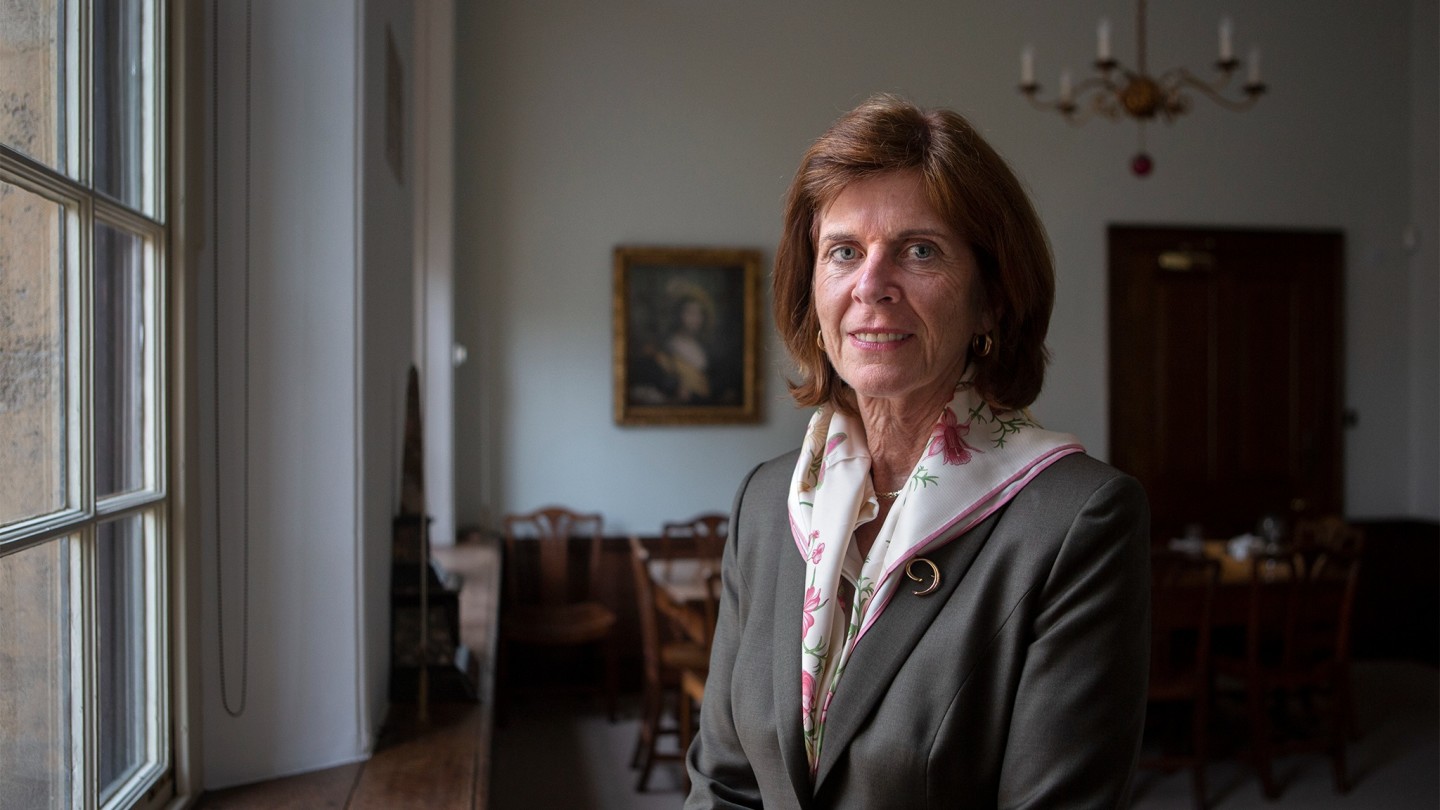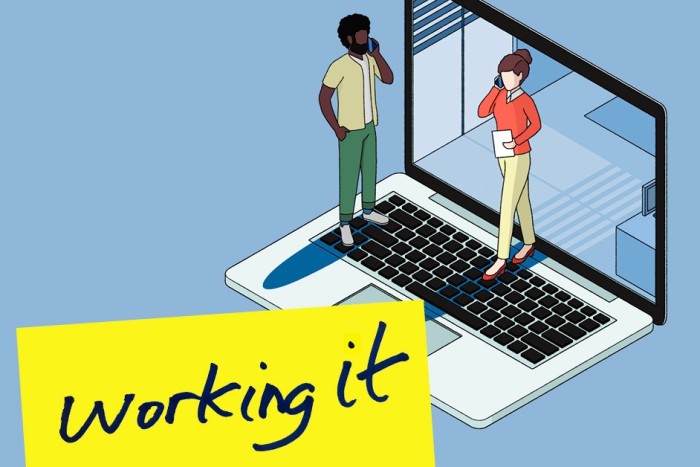Oxford’s vice-chancellor on the subtle science of crisis management

Roula Khalaf, Editor of the FT, selects her favourite stories in this weekly newsletter.
When Covid-19 engulfed Europe in spring 2020, Louise Richardson mobilised the University of Oxford to fight the pandemic. As vice-chancellor — in effect the institution’s chief executive, though no one in academia would dream of using that term — she set up formal and informal crisis management teams to look after all aspects of academic life, from teaching and assessment to research, from university finances to student welfare.
A conventional crisis management framework has a gold team at the top followed by silver and bronze. But Richardson called the first team silver and then the next one bronze — an indication both of her imaginative management and the challenge in leading a sprawling and disputatious organisation like an ancient university.
“This being an institution which has a visceral reaction to leadership, I thought if something were named gold it would immediately incur opposition — and by calling the leading group silver and letting people surmise among themselves where gold was, that would be helpful,” she says.
As it turned out, the silver group was “fast, flexible, considered, collegial, decisive and open in its working”, according to Richardson. “We brought all the colleges and departments along with us, which is tougher here than in many other institutions.”
At the same time she helped put together a smaller and less formal group of medical and life sciences professors, which co-ordinated a wide-ranging and internationally acclaimed research programme. Its best known achievements were the Oxford-AstraZeneca vaccine and the Recovery trial of potential Covid treatments, which together may have saved millions of lives worldwide.
In the early stage of vaccine development, for example, scientists at Oxford’s Jenner Institute needed £1m immediately to manufacture trial doses. There was no time to seek the money from external sources so Richardson agreed to provide it from central university funds.
“The informality, the lack of structure and the flexibility are important,” she says. “The fact that we are so devolved is part of what makes my job so challenging but it’s also one of the reasons we’re so successful.”
We are talking in the vice-chancellor’s splendidly spacious office in the neoclassical Clarendon Building, in the ancient heart of Oxford, with a view of the old Bodleian Library from the large main window. Her immediate predecessors had worked in modern university offices opened in 1975 half a mile away in Wellington Square, which Richardson describes as “a very functional building . . . like going into any building in any industrial estate in eastern Europe”.
“I felt too removed from the life and soul of the university. I wanted to be in the thick of things,” she says. So she persuaded a university donor to pay for the refurbishment of what had been the robing room for academic ceremonies in the Sheldonian Theatre next door, to become her headquarters.
Richardson, 63, began her seven-year term as Oxford’s vice-chancellor in January 2016, after serving for seven years as VC of St Andrews in Scotland. Before that she had spent her academic career in the US as a political scientist specialising in international security and terrorism. She has not lived in her native Ireland since completing a BA in history at Trinity College Dublin.
For Oxford the pandemic has had many silver linings, Richardson notes. Worldwide publicity for its scientific activities has enhanced the university’s already high reputation, as several recent rankings have shown. In the QS World University Rankings 2022 it moved up to second, behind MIT and ahead of Stanford, Cambridge and Harvard — up from fifth the previous year.
Three questions for Louise Richardson
Who is your leadership hero?
I resist the notion of a single heroic leader as I believe so much of leadership is contextual. That said, I would say that the leadership I’ve most admired recently is that of my colleagues, Professors Sir John Bell and Andrew Pollard in skilfully ensuring that the work of our brilliant colleagues, Professors Dame Sarah Gilbert, Tessa Lambe and their team, was supported and translated into public benefit.
What was the first leadership lesson you learnt?
Growing up with six siblings including three brothers taught me that everything has to be negotiated, and that the idea that males are superior to females is bunk.
What would you be doing if you were not a university leader?
I’d probably be a diplomat, a foreign secretary even.
“We could not be more proud of our scientists, who have forever interred the notion that the Fens is the place at which to pursue science,” she told the university in her annual Oration last month — getting in a dig at its traditional rival, Cambridge, and claiming to be “Britain’s leading university across the board”.
Oxford’s finances are far healthier than Richardson and colleagues anticipated at the beginning of the pandemic, when they originally planned for a £90m hit from Covid, mainly because student numbers did not fall as expected. Indeed, applications for the current academic year actually rose. There were 40,000 applications for just under 6,000 postgraduate places, up 18 per cent on the previous year. Despite Brexit, she says, “we even had an increase in postgrad applications from the EU”.
Richardson says she is “proud of how we have transformed the socio-economic make-up of the undergraduate student body”. The proportion of incoming students from state schools has reached 68 per cent, while the proportion from the “least advantaged backgrounds” is 20 per cent, up from 18.8 per cent last year, with a target of 25 per cent in 2023.
The intake of black British undergraduates has almost trebled in the past four years, she says, while conceding that improving access and diversity at the postgraduate level has further to go: “We intend to support a new generation of students of colour not only through dedicated scholarships at both undergraduate and graduate level, but also through a visible commitment to diversity and representation at all levels of the university.”
Continuing the drive for diversity will be one priority for Richardson during her remaining time in office. Another will be to pursue what she calls the “One Oxford” agenda — encouraging collaboration between the central university and Oxford’s 39 financially independent and self-governing colleges, to which almost all students are attached. As she noted in last month’s Oration, “the culture of colleges behaving as self-contained entities, which act primarily in their individual interests, is persistent”.
The pandemic response shows how well the federal “integrated model” can work, with colleges looking after their students, giving them individual tuition and pastoral care, while the university provides centralised teaching and research facilities, she says. “It’s much more difficult to get agreement but one does get agreement and it holds, because you have to work together.”
For Richardson personally the pandemic “hasn’t exactly been fun”. Her husband, Thomas Jevon, a family doctor with his own practice, lives in the US; so does one of their daughters. Covid made it impossible for the family to meet up every month, as they had done previously — “it has been a bit miserable to be so isolated”.
With family in mind, Richardson intends to return to the US after her term as vice-chancellor ends. What she will do there remains to be seen. “I’ve run two universities and this is a tough act to follow,” she says. “I have been approached about running some American universities and I have to decide if that’s something I want to do. There are a number of interesting foundations one could engage with. My pet answer to the question ‘What are you going to do next’ is ‘Less’.”
Working It podcast

Whether you’re the boss, the deputy or on your way up, we’re shaking up the way the world works. This is the podcast about doing work differently.
Join host Isabel Berwick every Wednesday for expert analysis and watercooler chat about ahead-of-the-curve workplace trends, the big ideas shaping work today - and the old habits we need to leave behind.
Letter in response to this article:
Vice-chancellor’s office chat irks one Oxford donor / From Lord Leigh of Hurley, House of Lords, London SW1, UK
Comments